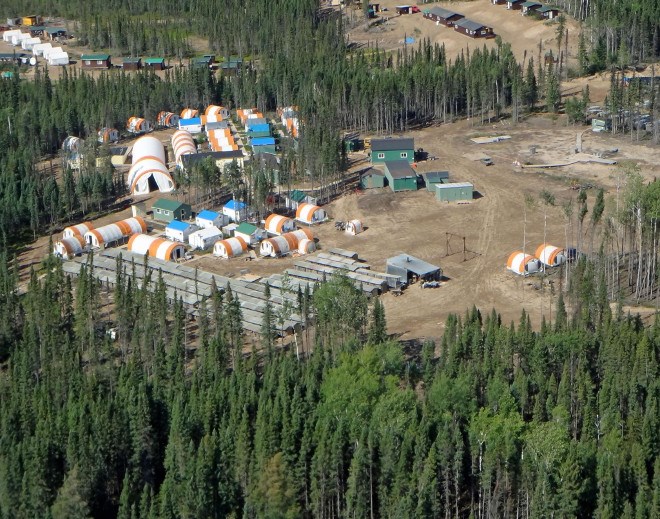Wyloo Metals faces some strong competition from a rival Australian mining company for the right to acquire Noront Resources and the leading mine project in the Ring of Fire.
Melbourne's BHP is making a $325-million cash offer to take over all of the issued and outstanding common shares of Noront for $0.55 per share.
The offer is coming through BHP Lonsdale, a BHP subsidiary company and owner of 3.7 per cent of Noront shares.
Wyloo Metals, a Perth-based subsidiary of Australian mining magnate Andrew Forrest's Tattarang, made a $133-million and $0.315 per share offer to acquire Noront in late May. Wyloo is Noront's leading shareholder at 24.4 per cent and is making moves to increase its stake to 37.5 per cent.
Noront's board of directors is recommending shareholders accept the BHP offer.
“This transaction provides a significant premium to Wyloo's indicative offer, and crystallizes immediate and certain value through an all-cash offer," said Noront CEO Alan Coutts in a July 27 statement.
"After careful consideration, Noront’s board of directors, with input from its financial and legal advisors and the special committee, determined this offer is in the best interests of the company and shareholders. BHP has the financial strength, world-class mining expertise, and commitment to work in partnership with stakeholders to advance Eagle’s Nest and the Ring of Fire, which has the potential to deliver benefits to local communities, First Nations, and Ontario for years to come."
The Noront news release said BHP's offer "represents a growth opportunity in a prospective nickel basin capable of delivering a scalable, new nickel-sulphide district and provides the BHP group with more growth options in future facing commodities.
"With proven expertise and capabilities in both exploration and bringing complex base metals projects into production, the BHP group is well positioned to advance Noront’s Ring of Fire projects through the next stages of development."
Noront said BHP's $0.55 per share offer represents a 129 per cent premium to Noront’s closing price on May 21 and a 69 per cent premium to Noront’s closing price on yesterday.
Once BHP circulates its takeover bid proposal to Noront shareholders, they'll have 105 days to make their choice.
In a statement, BHP Chief Development Officer Johan van Jaarsveld called it a "win-win" for shareholders of both companies.
"For BHP, the acquisition of Noront presents a world-class growth option, in a key future-facing commodity. The highly prospective Eagle’s Nest nickel project provides an excellent platform from which to develop further opportunities in Ontario’s Ring of Fire. For Noront shareholders, this offer recognizes and realizes the full value of Noront’s portfolio, delivering guaranteed shareholder returns in the near term," he said.
"We are excited to bring our mining expertise and capabilities to develop these long-term opportunities. We look forward to working in constructive partnerships with First Nations peoples, government and communities to realize the untapped potential of these important resources.”
BHP recently moved its nickel and copper exploration office to Toronto in an attempt to position itself to take advantage of anticipated future demand for metals needed in the electric vehicle market.
In a statement to shareholders, Noront said cash is tight and "significant" financing is needed to bring its Eagle's Nest nickel project, and a slew of its other chromite, base and precious metal properties, into production.
"Given the relatively early stage of Noront’s projects, it will be several years before the Eagle’s Nest project or other projects in the portfolio reach commercial production, if at all."
After many years of delays, there still is no access road to the isolated high-grade mineral belt, 500 kilometres north of Thunder Bay. Government-funded environmental assessment processes are now underway and it may be two years before road construction starts.
The tentative commercial production start for Eagle's Nest is 2026. The start date to begin mining nickel at Eagle's Nest has repeatedly been pushed back by Noront due to successive federal and provincial governments' inability to consult and reach unanimous agreement with area First Nations and the inability to produce and finance a coherent regional development plan.




